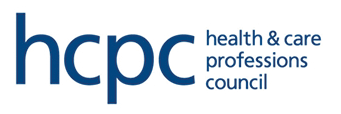NHD STUDENT BLOG SERIES

Getting and, most importantly, staying registered!
By NHD blogger, Sian Cunningham, RD
Finally, after all your hard work and study, you have done it! Your course is completed and you can now take the next steps in your career journey. As a qualified healthcare professional who has completed a course accredited by either the British Dietetic Association (BDA) or the Association for Nutrition (AfN), you can apply to join a register that will show the public that you have achieved a standard of education and practice that makes you a safe, suitably qualified and skilled practitioner.
Being registered is mandatory in the UK...

As well as being accredited by the BDA, dietetic courses should also be approved by the Health and Care Professions Council (HCPC). The HCPC is the regulator that holds the register for 15 different health and care professions in the UK, including dietetics. You can’t use the title 'dietitian' (which is protected) unless you are registered with them! It’s a mandatory register, which means that if you want to be a dietitian in the UK, you have to be registered with them. People calling themselves dietitians who aren’t registered can find themselves in trouble with the law, as there are legal protections around the use of the name.
As a registered nutritionist, you can join the UK Voluntary Register of Nutritionists (UKVRN) held by the AfN. This allows you to use the title of 'Registered Associate'. You can’t use this title (even if you are HCPC registered) unless you are on the UKVRN.
Both the HCPC and the UKVRN give a quality mark of assurance to the public, and that’s really what registration is all about, keeping the public safe!
Standards of registration
To get registered, you have to demonstrate that you meet all of the standards outlined by the register you are applying to, and in order to stay registered, you have to commit to continuing to meet the standards (relevant to your role) throughout your career.
The HCPC has three sets of standards that set out the expectation of how registrants should behave. These include:
The Standards of Proficiency: what you need to know and be able to do to enter the profession
The Standards of Conduct Performance and Ethics: how they expect registrants to behave
The Standards of Continuing Professional Development (CPD): what you need to do to keep your knowledge and skills up to date so that you continue to practice safely as you move further away from your pre-registration training.
Continuing professional development

You should carry out CPD activities regularly, and they should be relevant to the role that you are doing. CPD activities could include:
materials you have produced, such as leaflets, presentations you have given and course assignments;
materials showing you have reflected on your work, such as written reflections or personal development plans;
materials you have obtained from others: such as course certificates or letters from service users or colleagues.
Put simply, CPD doesn’t always have to be a course (although the BDA offers lots of CPD courses in a wide range of specialist areas) but could include lots of things that you do in your daily work that have led you to consider, research, learn and reflect. You could even critically review an article in NHD relevant to your work and take a look at specific interactive NHD CPD eArticles here...
You can find lots more information on CPD on the HCPC web pages and AfN and BDA members' pages.
How will they know if I don’t do any CPD?
Well, firstly, it will show in your practice! Failing to carry out CPD means you don’t learn and don’t progress. Your patient care will then fall short, putting people at risk. If there are serious concerns, you may even get reported to your register for investigation for fitness to practice.
The HCPC also audits a percentage of all its registrants at renewal, so if you are called up, you will have to submit your CPD portfolio for inspection. It can be much easier to do this if you have one! Make a plan to start collecting evidence of your CPD from the start of your career. Not only will this reassure and give you confidence that you are developing within your profession, but it will make being called up for audit a lot less stressful!

Siân works with the BDA as Professional Practice Manager. She previously worked as an Assistant Professor at the University of Nottingham. She has worked in a range of clinical areas, specialising in learning disabilities, palliative care and nutritional support. Twitter@: siancunningham2
Siân Cunningham, MSc, RD, AFHEA
Professional Practice Manager, BDA
